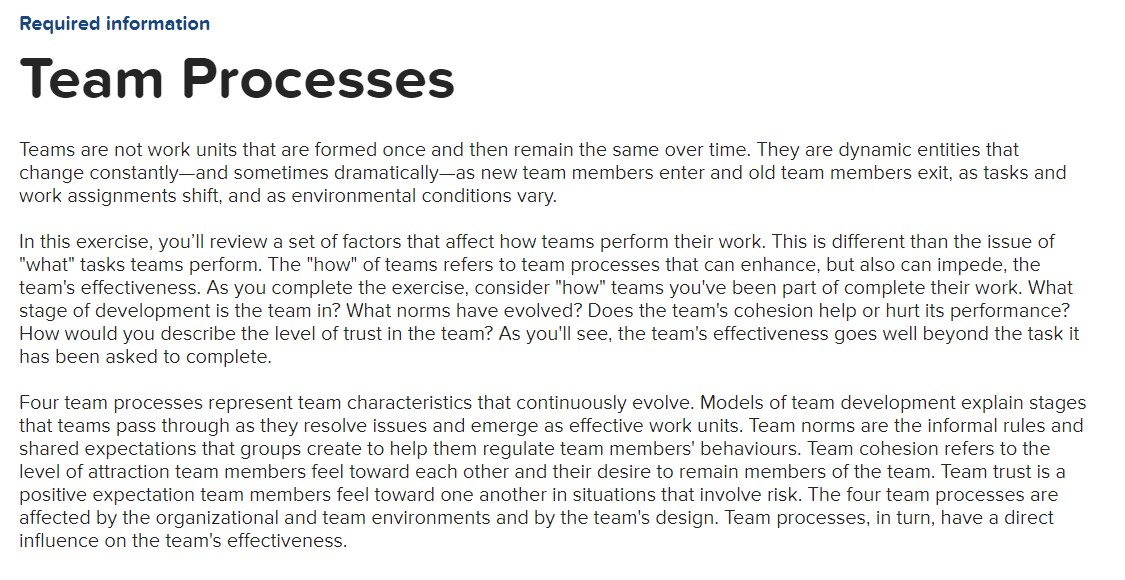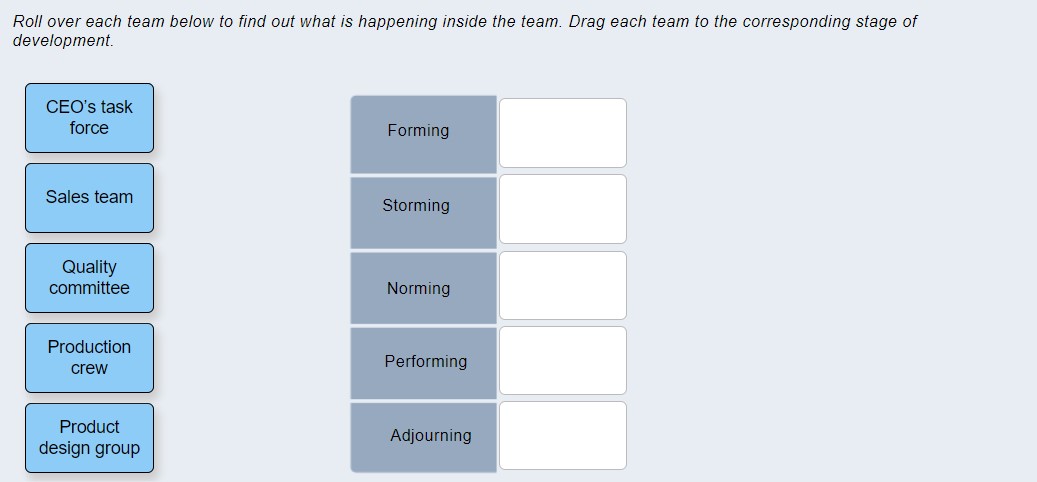Answered step by step
Verified Expert Solution
Question
1 Approved Answer
Required information Team Processes Teams are not work units that are formed once and then remain the same over time. They are dynamic entities


Required information Team Processes Teams are not work units that are formed once and then remain the same over time. They are dynamic entities that change constantly-and sometimes dramatically-as new team members enter and old team members exit, as tasks and work assignments shift, and as environmental conditions vary. In this exercise, you'll review a set of factors that affect how teams perform their work. This is different than the issue of "what" tasks teams perform. The "how" of teams refers to team processes that can enhance, but also can impede, the team's effectiveness. As you complete the exercise, consider "how" teams you've been part of complete their work. What stage of development is the team in? What norms have evolved? Does the team's cohesion help or hurt its performance? How would you describe the level of trust in the team? As you'll see, the team's effectiveness goes well beyond the task it has been asked to complete. Four team processes represent team characteristics that continuously evolve. Models of team development explain stages that teams pass through as they resolve issues and emerge as effective work units. Team norms are the informal rules and shared expectations that groups create to help them regulate team members' behaviours. Team cohesion refers to the level of attraction team members feel toward each other and their desire to remain members of the team. Team trust is a positive expectation team members feel toward one another in situations that involve risk. The four team processes are affected by the organizational and team environments and by the team's design. Team processes, in turn, have a direct influence on the team's effectiveness. Roll over each team below to find out what is happening inside the team. Drag each team to the corresponding stage of development. CEO's task force Forming Sales team Storming Quality committee Norming Production crew Performing Product Adjourning design group
Step by Step Solution
There are 3 Steps involved in it
Step: 1

Get Instant Access to Expert-Tailored Solutions
See step-by-step solutions with expert insights and AI powered tools for academic success
Step: 2

Step: 3

Ace Your Homework with AI
Get the answers you need in no time with our AI-driven, step-by-step assistance
Get Started


